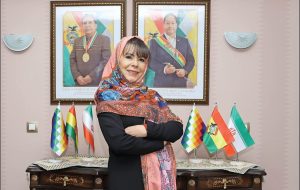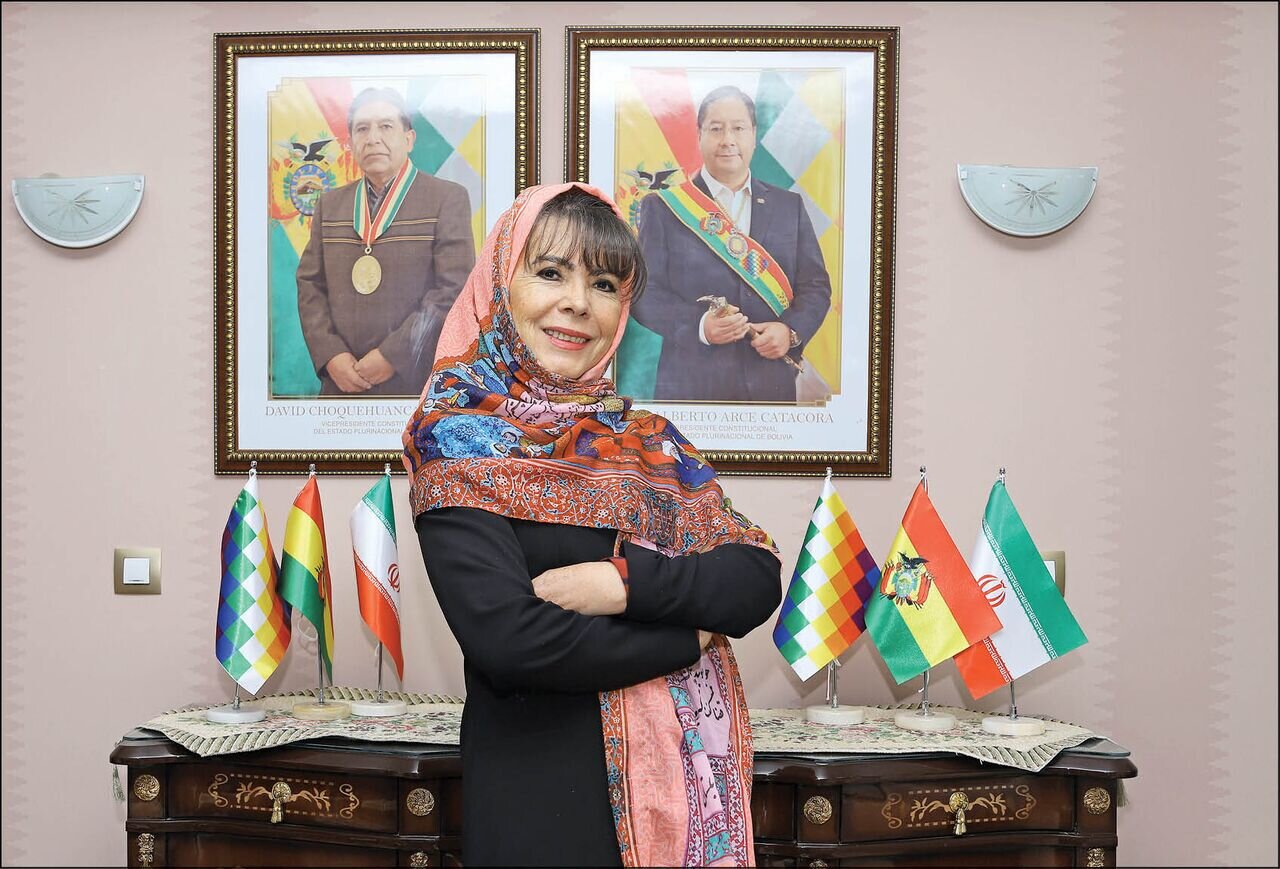Intl. community must recognize civilian nature of Iran nuclear program, Bolivian envoy says
TEHRAN- Bolivia’s Ambassador to Iran Romina Guadalupe Perez Ramos has noted that the world should be aware of peacefulness of Iran’s nuclear program. Speaking with IRNA on the sidelines of the first International Conference on Nuclear Sciences and Technology (ICNST) held in the central Iranian city of Isfahan on May 6, she said that despite


TEHRAN- Bolivia’s Ambassador to Iran Romina Guadalupe Perez Ramos has noted that the world should be aware of peacefulness of Iran’s nuclear program.
Speaking with IRNA on the sidelines of the first International Conference on Nuclear Sciences and Technology (ICNST) held in the central Iranian city of Isfahan on May 6, she said that despite the accusations leveled against Iran, the progress in Iran’s nuclear activities is completely peaceful.
“The achievements that Iran has made in various fields, including in the production of radiopharmaceuticals and the diagnosis and treatment of deadly diseases such as cancer, demonstrate such reality,” the envoy said.
Ramos also stressed that the nature of Iran’s nuclear program is peaceful and the international community should recognize such a fact.
Regarding the importance of holding the meeting due to the pressure exerted by Western countries against Iran, she said that despite Iran’s many years of cooperation with the International Atomic Energy Agency and demonstrating its peaceful approach by fulfilling its commitments within the framework of the nuclear agreement, it was the United States that unilaterally withdrew from the agreement and imposed extensive sanctions unfairly against Iran to pressure and corner the nation.
The Bolivian Ambassador pointed out the reverse result of such a sanctions policy against Iran and added that Iran’s progress has not stopped in spite of numerous accusations leveled the country’s nuclear program and activities.
She noted that the breakthroughs that Iran has made in various fields, including in the production of radiopharmaceuticals and the diagnosis and treatment of deadly diseases such as cancer, demonstrate the reality.
Ramos mentioned the unveiling of the latest diagnostic radiopharmaceuticals as evidence of Iran’s peaceful nuclear industry’s accelerated progress and added that these radiopharmaceuticals are very important in cancer treatment and are highly priced worldwide, but Tehran has succeeded in obtaining them with its indigenous technology despite the sanctions.
“This is while the goal of sanctions is to create more dependency on target countries, but Iran has shown that it can withstand even the harshest sanctions with its independence and reliance on domestic capabilities,” Ramos continued.
She also highlighted the close cooperation between Iran and Bolivia in the field of science and technology, as underlining that Iran is implementing extensive investment projects in South American countries, focusing on the development and expansion of health institutions, scientific and educational relations, as well as peaceful nuclear cooperation.
Especially, Bolivia can benefit from Iran’s successful nuclear achievements in the field of radiopharmaceuticals and the treatment of severe diseases, paving the way for further cooperation, she said.
The ambassador also stated that Bolivia respects Iran’s peaceful nuclear program and believes that Tehran’s achievement of new peaceful advances in the nuclear field is its right.
“This approach has enabled it to resist against the unilateral and aggressive policies of the United States and play an important and pioneering role for other countries facing similar pressures from the United States.”
The first International Conference on Nuclear Sciences and Technologies in Isfahan opened on Tuesday, May 7th, with the presence and speech of Mohammad Eslami, the head of the Atomic Energy Organization.
Panels of experts started their meetings in Isfahan ahead of the 30th edition of the National Nuclear Conference and the First International Conference on Nuclear Sciences and Technology (ICNST) on May 6 for three days.
Around 100 people, half of them from other countries, gave lectures in person and online on the latest scientific achievements.
A day after the opening ceremony of the nuclear conferences, Director General of the International Atomic Energy Agency (IAEA) Rafael Grossi attended the event, met with Head of the Atomic Energy Organization of Iran (AEOI) Mohammad Eslami, and answered reporters’ questions by participating in a briefing.
